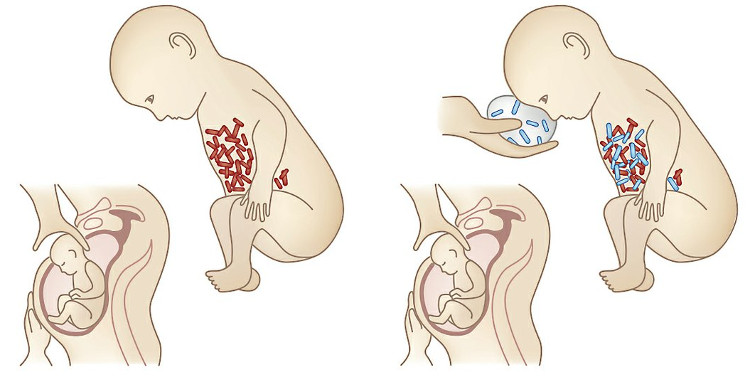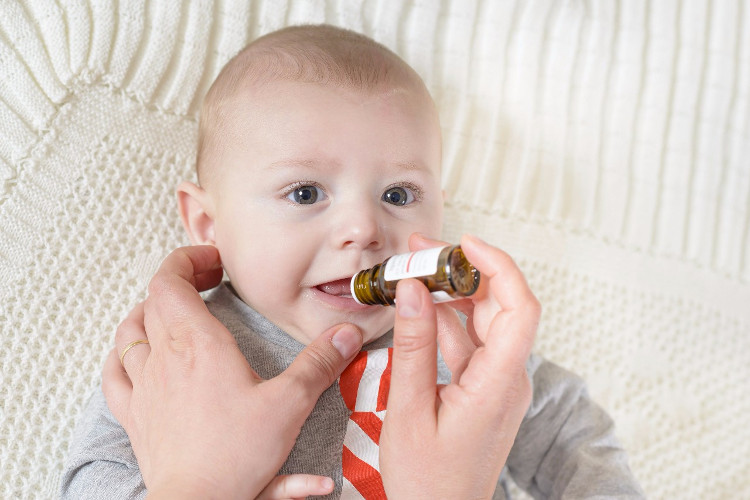Antibiotics seriously affect the development of young children
Putting unnecessary antibiotics into the young body reduces the diversity, stability and abundance of intestinal bacteria.
Did you know that when children learn to walk and practice speaking, they are also in the process of developing an extremely important development process? It is the formation of microorganisms that reside in the intestine, play a role in digesting food, build up a defense system against pathogens and even, affect emotions.
A weak intestinal microflora is associated with allergies, obesity, enteritis and diabetes. But to be able to develop a healthy gut microbiota, children need to be exposed to many different species of bacteria. How is this affected in the early years?

To develop a healthy gut microbiota, children need to be exposed to a variety of different bacterial species.
Recently, two scientific papers published in Science Translational Medicine revealed the interesting aspects of this process. Scientists from Langone Medical Center, New York University, Broad Institute, MIT and Harvard University have discovered that the way babies are born, the types of food and antibiotic treatment they receive are affect intestinal flora.
According to studies, if exposed more to microorganisms transmitted from the mother, through natural reproductive pathways or lactation, the microbiota in the child will be healthier. In contrast, the antibiotic treatment indicated will have a negative impact on the child's microbiota.
"Putting unnecessary antibiotics into a young body reduces the diversity, stability and abundance of microorganisms , " the author of one of the two articles, microbiologist Ramnik Xavier, came from the Broad Institute. said.

If the child is treated with antibiotics, the number of bacteria in the intestine will decrease significantly.
Two scientific papers also show how researchers collect data. Accordingly, they took the stool samples of 40 children from birth until they reached 2-3 years old. The health of children and mothers is closely monitored in conjunction with the change of samples over time.
Xavier and colleagues found that in the early years of life, children often experience ear and upper respiratory disease. If they are treated with antibiotic episodes, the number of bacteria in the intestinal tract decreases significantly.
An immediate effect also occurs after the treatment, the microbial populations carrying resistance genes skyrocket in numbers. It takes a while for them to fall back to normal levels. These resistant microorganisms do not make children sick right away, but they will still be there and wait. Once they break and cause an infection, treatment is now more difficult.

Sometimes antibiotics are necessary but only used "when needed and followed by a doctor's prescription".
It must be said that sometimes, antibiotics are necessary for children's health. If a child has an infection and it cannot use his own immune system to combat it, antibiotics in this case are a measure. However, Xavier explained that in most cases, ear problems and common colds are caused by viruses.
Antibiotics are not only ineffective, but also kill the bacteria that are helping us maintain immunity and intestinal health. Fortunately, simple tests can now help doctors check when a child's disease is caused by harmful bacteria.
But to make sure that the microbial population of the child is healthy, the researchers recommend that antibiotics should only be used "when needed and followed by a doctor's prescription". Antibacterial soaps and skin creams are also recommended for limited use. Although gut bacteria are not an absolute guarantee of children's health, try to protect the most diverse development possible for them.
- Children under 2 years of age use many antibiotics prone to obesity
- Cautions for treating cough for young children
- Maltreating marriage affects your baby's sleep
- Children taking early antibiotics are more prone to asthma
- Slow children do not affect intellectual development
- Abuse of antibiotics will make children more susceptible to illness
- The habit of ruining young oral teeth
- Antibiotics increase the risk of eczema
- Bad habits of parents hurt the liver and kidneys, endanger children
- Risk from fluoroquinolones
- The world is depleted of new generation antibiotics
- Antibiotics increase the risk of asthma in children
 The United Nations' all-human warning: All antibiotics are becoming useless
The United Nations' all-human warning: All antibiotics are becoming useless How did bacteria learn to fight antibiotics?
How did bacteria learn to fight antibiotics? 10 million deaths are one of the startling numbers about 'Antibiotic resistance'.
10 million deaths are one of the startling numbers about 'Antibiotic resistance'. 7 principles when using antibiotics
7 principles when using antibiotics